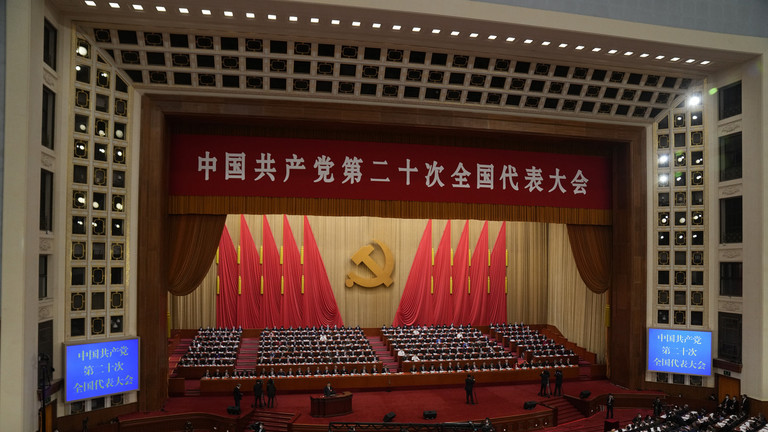
At the 20th National Congress of the Communist Party, China’s president, Xi Jinping, gave a lengthy address during which he hailed the party’s accomplishments in preserving social stability and national security while also promising to pursue the cause of Taiwan’s reunification.
Around 2,300 party delegates heard Xi say on Sunday that “the Taiwan subject is a concern for the Chinese, a matter that must be handled by the Chinese.”
“We will continue to make every effort to achieve peaceful reunification, but we will never pledge to abandon the use of force, and we maintain the right to use all necessary measures,” he added.
By saying that the warning was “by no means intended” at them, but rather the “outside forces” and the “few separatists seeking Taiwan independence,” Xi underscored that his “Taiwan compatriots” shouldn’t interpret it as a threat.
The Chinese leader said that Beijing has “always showed respect and concern for our Taiwan compatriots and sought to give advantages to them,” encouraging “people on both sides of the Strait to work together to promote Chinese culture and form tighter relationships.”
The official government stance outlined in a white paper issued last month is consistent with Xi’s statement that Beijing would want a peaceful reunion but would not rule out employing its force. The Chinese government reaffirmed in the declaration its commitment to non-military tactics, but it also stated that it would “reserve the option of adopting all necessary measures” to regain control of Taiwan.
Since 1949, when nationalist troops under Chiang Kai-shek withdrew to the island after losing the civil war to the Communists, Taiwan has been self-governing. Beijing sees Tsai Ing-wen, the president of Taiwan at the moment, as a separatist. Under her leadership, Taipei has increased its procurement of US weapons, disregarded Beijing’s warnings, disregarded key US officials’ invitations to the island, and pressured Western countries to stop recognizing China’s sovereignty over Taiwan.
A “one nation, two systems” paradigm has been been up by China for Taiwan. As long as China’s “national sovereignty, security, and development interests” are not jeopardized, Taiwan might establish a “social system different from the mainland.” The idea was rejected by Taipei, which stated that only the Taiwanese people had the authority to choose the destiny of the island.
RELATED ARTICLES
- UK Warns that China is Preparing for Total Nuclear War with the West
- Russia & China Plan Building Nuclear Power Plant on the Moon
- China expands Social Credit Score to include Central Bank Digital Currencies
- Chinese people angry after government announces Lockdowns for Common Flu
- Protests and riots intensify in China to escape Xi's Lockdown tyranny











